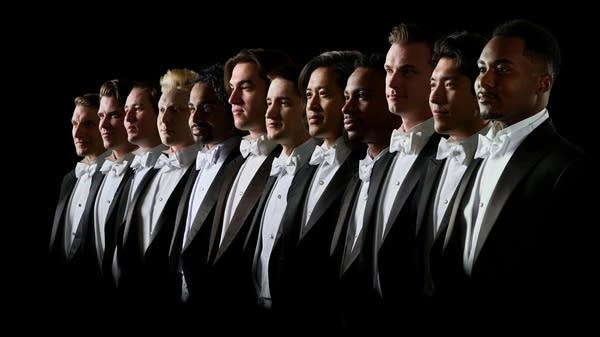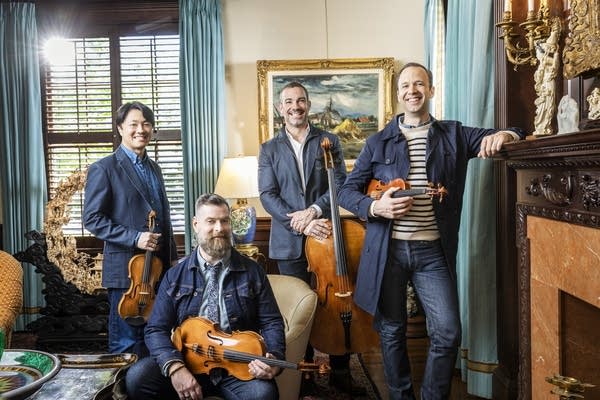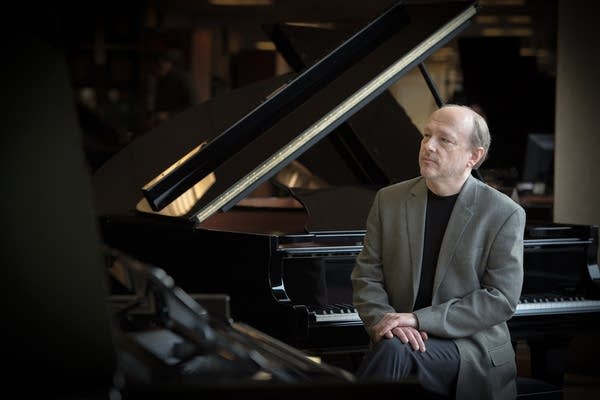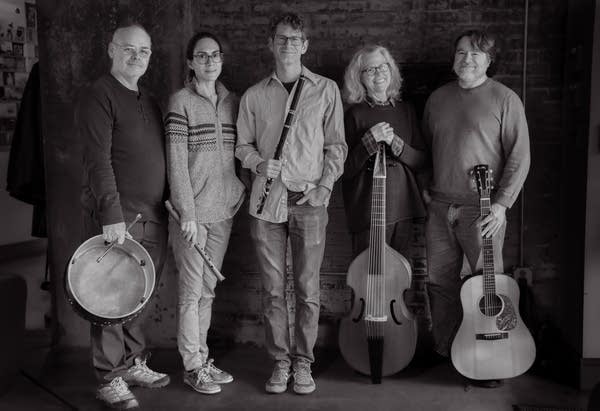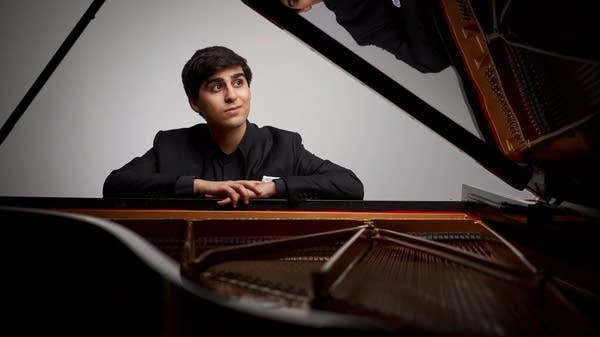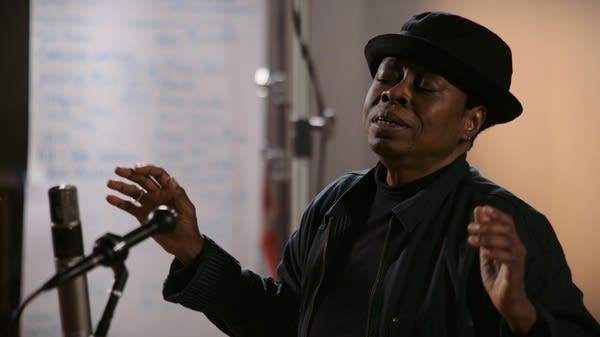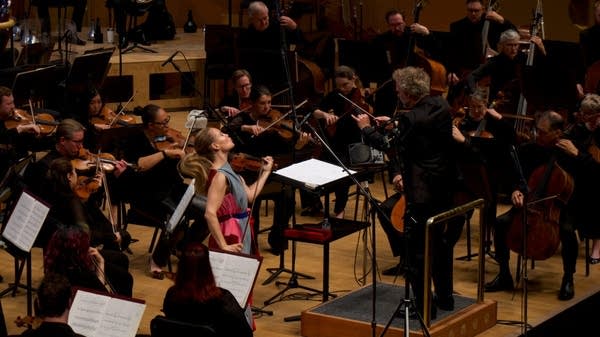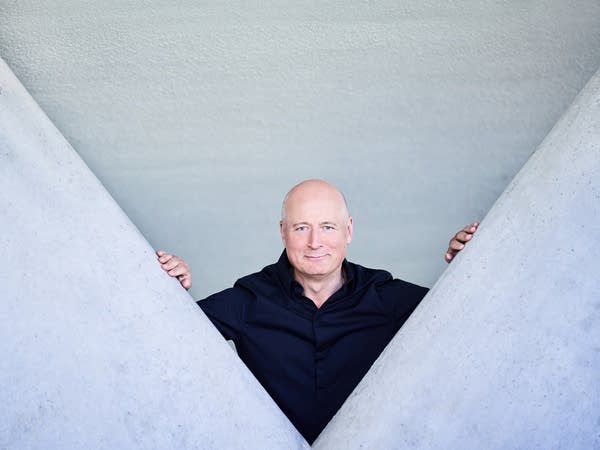Kirk Elliott - Solstice Spirit (Pipistrelle music)
Kirk Elliott is an award-winning composer, multi-instrumentalist, and self-employed music historian who's blessed with a very vivid imagination. The spark for his new recording, Solstice Spirit, was ignited by a single carol, "I Saw Three Ships." "It was supposed to be background for a Christmas-type movie and they ended up not using that music," Kirk says. "I thought, 'Well, this is just too much fun to just throw in the trash bins. I should do a CD of happy Christmas music.' And when I finished the CD, I realized that it had actually been a kind of therapy for me because my sister passed away this year in May. So it sort of comes from two completely different places: one practical and useful, and the other a little more therapeutic for me, anyway."
So the recording started off with the title, "Feel the Nog," as sort of a happy party recording. Then you went a step further and created this psychedelic musical trip with this character you created. Tell me the story behind Sister Gildaherd the Benign.
"So Gildaherd the Benign is almost an anagram of Hildegard von Bingen. So as with my last CD, Widdershins the legend of Tristan Shout, I sort of made up a historical character. [Tristan] was 900 years old, so I could take a tune from almost any period in the last 1000 years and arrange it my own way and say it was his idea. And in this case, Gildaherd loses her family and is put in an obscure convent and has trouble sleeping because her roommate snores. Her roommate is also an herbalist, so Gildaherd puts buds in her ears to drown out the snoring but the buds actually convey mystical musical visions. So she hears the songs in her head as I do when I'm trying to sleep."
I didn't realize that the French carol, "Bring a Torch, Jeanette Isabella,' didn't actually start out as a Christmas carol.
"It was a dance tune apparently for the upper classes. So in the notes I do mention that the nun Sister Gildaherd and the nuns embraced this tune and added it to their festive solstice celebrations, dancing through the nunnery, all clinging to the hips of the foremost with music most rhythmic. So this tune actually used to wake me up. Night after night, I would wake up and think, 'Well, what if the guitar did this and what if the bass double bass did this' — so it's ended up being quite sort of flatpicking guitar feature.

"It was almost like what I guess they call automatic writing. I would just wake up with a guitar line just sort of going through my head, so I would always keep some manuscript paper beside the bed; maybe I'd write out a few notes, and then when I got up I would just go down to the studio and see what came out, and quite often it was exactly as I had heard it, which is actually a quite efficient process if you don't mind the insomnia."
I think I'm starting to see the connection here between you and Sister Gildaherd. I really like the third track, with its Scottish influences.
"'I Never Knew I Loved Thee' is from a manuscript. It's the oldest surviving source of Scottish lute music. It's called the Row Alan manuscript, and it's actually just a little notebook someone kept under their bed in the early 1600s in a castle in Scotland, and there you have the way they write lute music. So the music, which is called tablature, actually shows you exactly where the player put their own fingers, so it's almost like watching someone play it. It starts with a solo flute, which is my plastic copy of a baroque flute, and then it's joined by Renaissance lute and Celtic harp and it's me playing all three of them, so it's a bit of a trick to, you know, keep the tempo the same so it's a trio for one guy."
You have quite a menagerie of instruments in your musical lair. "The Carol of the Russian Children" features a three-string balalaika.
"Yes — as I like to say, every instrument tells a story. So the one I have has got three strings. Interestingly enough, two of the strings are tuned to the same note. My brother saw this. He was at a party in a frat house in Montreal, and he saw this poor instrument — neglected, nailed to the wall just for decoration. So he figured, 'Well I know who could use that!' And somehow it came home with him, and it's still in the studio and it's a lovely little thing. It's very fragile. It's probably almost 100 years old and it plays along with a mandolin, a medieval vielle, which is like a viola-sized instrument, and some double bass and some more percussion."
As you were putting this recording together, what surprised you the most?
"I guess how complicated and more musical it became from the original concept, which was just up-tempo party arrangements of Christmas carols. That was really the idea, and then all these medieval and Renaissance things, which is music I'm very partial to, worked their way into it with the various instruments. Actually, just a few weeks before I talked to you, anyway I'd given up on the project. I thought, 'I can't get this done by Christmas; no way.' And I felt greatly relieved, and then out of the blue, I suddenly got a nice collection of Christmas concerts I'll be playing starting next week. So suddenly it was like, 'Ah! Finish the CD now!' So I really, really, really burnt the midnight oil and got it done just in time."
Just in time for you to enjoy Solstice Spirit this holiday season!
Resources
Kirk Elliott (official site)
Love the music?
Show your support by making a gift to YourClassical.
Each day, we’re here for you with thoughtful streams that set the tone for your day – not to mention the stories and programs that inspire you to new discovery and help you explore the music you love.
YourClassical is available for free, because we are listener-supported public media. Take a moment to make your gift today.
Your Donation
About New Classical Tracks®
Host Julie Amacher provides an in-depth exploration of a new classical music release each week.
Subscribe on Apple Podcasts, TuneIn, Radio Public, or RSS.


